In the afternoon of September 26, 2020, the first lecture (the fifth lecture in total) of the 2020 Nitto Special Lecture by the Japan Research Center of Shanghai Jiaotong University, "Japan's Cultural Tradition and Modernization Transformation - A Comparative Perspective of East Asia", was successfully held in Conference Room 206, the fourth floor, north of Xuhui Campus, Shanghai Jiaotong University. The event was hosted by the Japan Research Center of Shanghai Jiaotong University and sponsored by Nitto Electric (China) Investment Co., Ltd. The lecture invited Professor Ge Zhaoguang, a distinguished senior professor of the Institute of Culture and History and the Department of History of Fudan University in Shanghai, the winner of the first China Book Award, Professor Xu Xiaonian, a lifelong honorary professor of China Europe International Business School and a winner of the Sun Yefang Economic Science Award, as the keynote speaker, and Professor Wu Jinan, a former director of the Japan Research Office of the Shanghai Institute of International Studies and the chairman of the Academic Committee of the Japan Research Center of Shanghai Jiaotong University, as the reviewer, Professor Ji Weidong, a senior professor of liberal arts at Shanghai Jiaotong University and director of the Japan Research Center, served as the moderator. At the same time, many scholars and practitioners participated in the lecture.
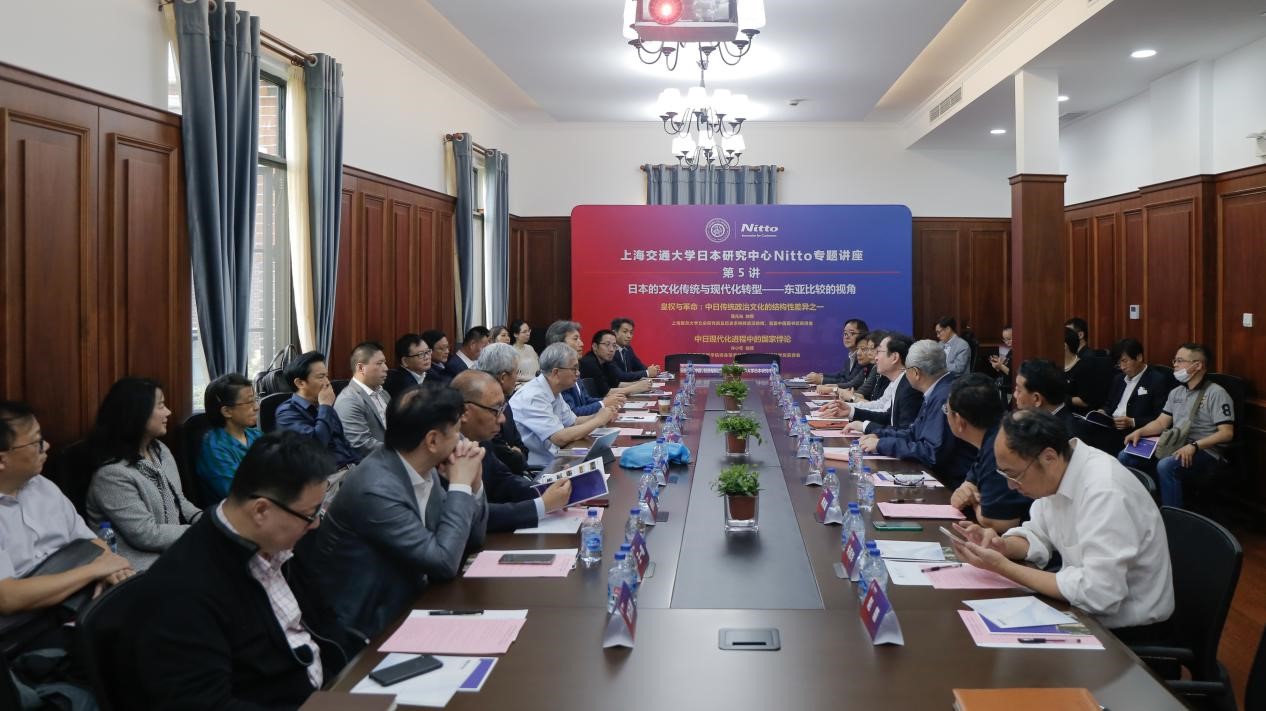
Meeting site
First of all, the Japan Research Center of Shanghai Jiaotong University and Nitto Electric (China) Investment Co., Ltd. held the signing ceremony of the second phase of the sponsorship agreement for the Nitto special lecture. Mr. Cheng Shengyi of Nitto Electric (China) Investment Co., Ltd. and Professor Ji Weidong, director of the Japan Research Center of Shanghai Jiaotong University, signed the sponsorship agreement for the title lecture on behalf of both parties.
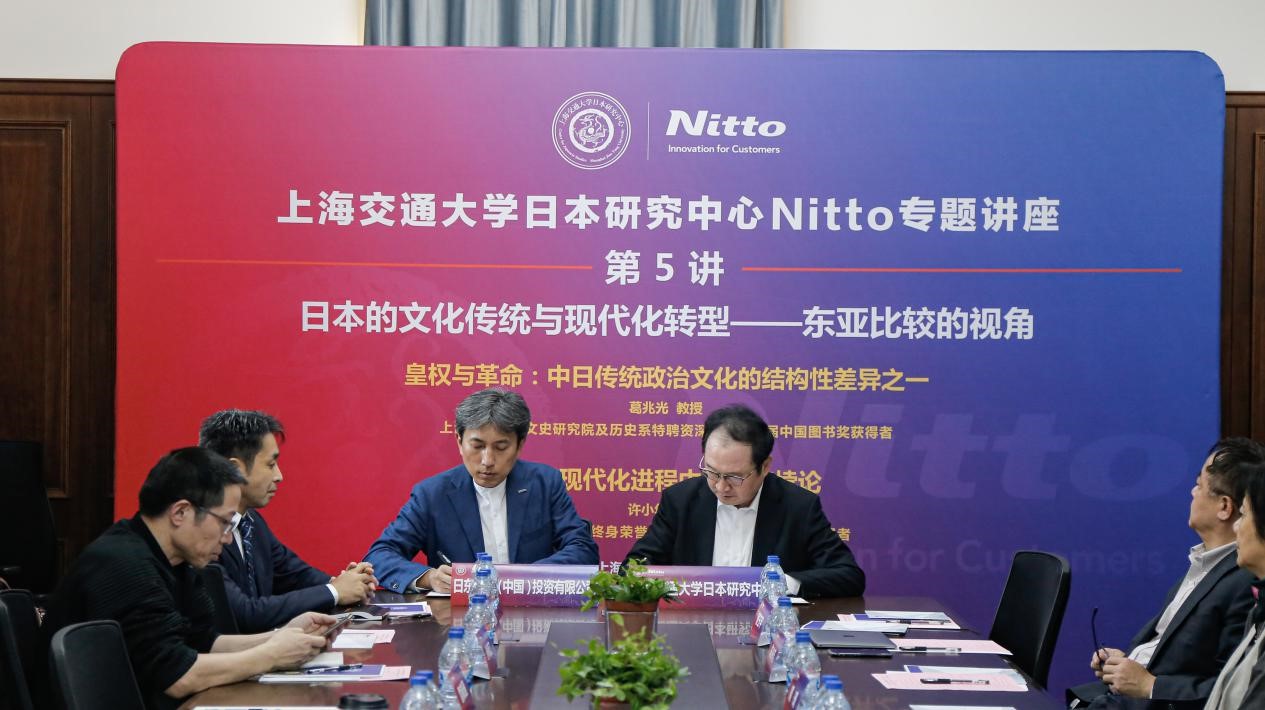
Signing Ceremony of Nitto Special Lecture Phase II
Subsequently, the Chairman of Chengshengyi delivered a speech on behalf of Ridong Electric (China) Investment Co., Ltd. He said that the theme of this lecture is very consistent with the current Japanese research, and I believe that you will definitely benefit from the wonderful speech.
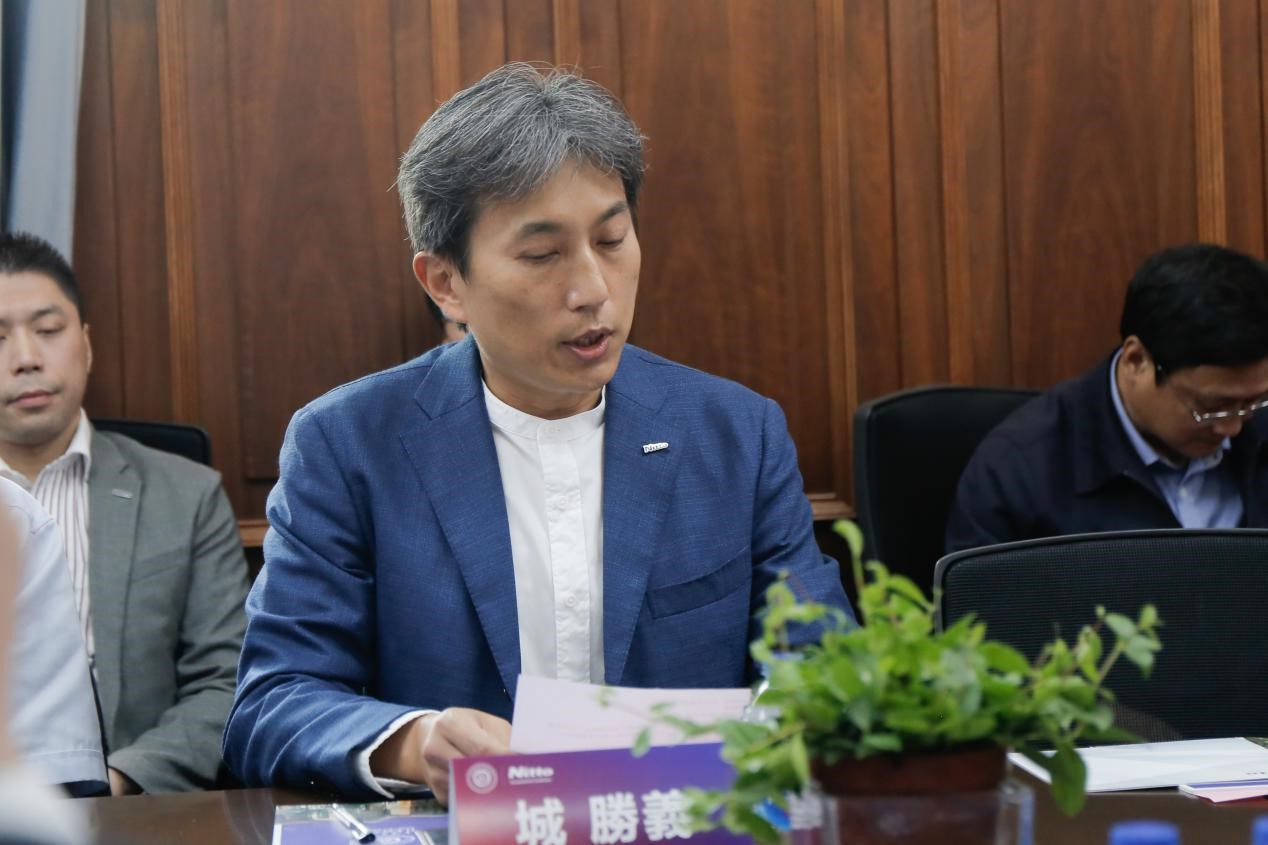
Great Wall Shengyi, Director of Nitto Electric (China) Investment Co., Ltd., delivers a speech
After the signing ceremony, the keynote speech officially began under the auspices of Professor Ji Weidong. The first guest speaker was Professor Ge Zhaoguang, a distinguished senior professor of the Institute of Culture and History and the Department of History of Fudan University in Shanghai, and the winner of the first China Book Award. The theme of the speech was "Imperial power and revolution: one of the structural differences between China and Japan's traditional political culture".
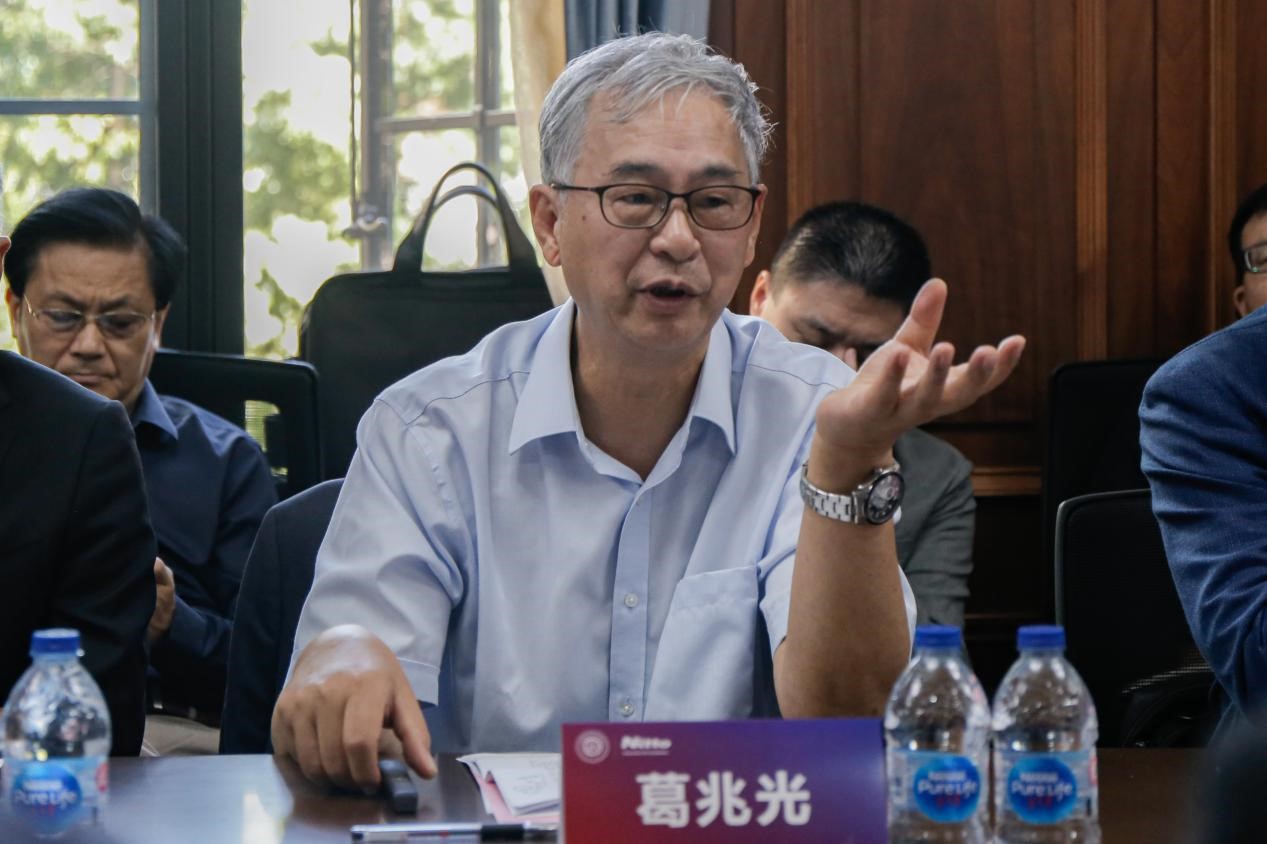
Professor Ge Zhaoguang's Speech
Professor Ge focuses on the structural differences between Chinese and Japanese traditional political cultures from the perspective of imperial power and revolution. First of all, Professor Ge made a general comparison of the differences in the political power structure between Japan and China before the Meiji Restoration. Later, he assisted in the extradition of Bian Hao and other scholars, pointing out that Japan's "great policy return" and "withdrawal of vassals and establishment of counties" during the Meiji Restoration were institutionally (ancient) Chinese. However, after the completion of the system transformation to the ancient Chinese style (centralization and prefecture county system), Japan gradually moved towards modernization. On the contrary, China, which established such a system earlier, failed to successfully complete its modernization transformation. Through the gradual progress of the above questions, Professor Ge finally led to the theme of this speech: What is the "structural" and "fundamental" difference between China and Japan's traditional political culture?
Later, Professor Ge pointed out that this difference of views just reflects the different understanding of the legitimacy of political power between China and Japan, starting from the classic debate about whether the Tang Wuyi surname and the nature of virtue match heaven are revolution or rebellion, and further put forward four specific differences: first, he explained the difference between "heaven is the only day" and "people have two masters" by comparing the powers of the emperor and the emperor; Secondly, it discusses loyalty and betrayal with the clue of monarch and his subjects, monarch and court, state and master, and points out the absolute and relative differences of political ethics; Third, the differences between "changing dynasties" and "salt and reform" are explained by the power game in the historical process of "the Meiji Restoration" from "the Black Boat Incident", "the founding of the country", "the return of the Great Policy" to "the Meiji Restoration"; Fourthly, from the perspective of four small issues, this paper preliminarily discusses the differences between "revolution" and "liberation" in the context of traditional Chinese and Japanese political culture.
The keynote speaker of the second keynote speech was Professor Xu Xiaonian, a lifelong honorary professor of CEIBS and winner of Sun Yefang Economic Science Award. The theme of the speech was "National Paradox in the Process of China Japan Modernization".
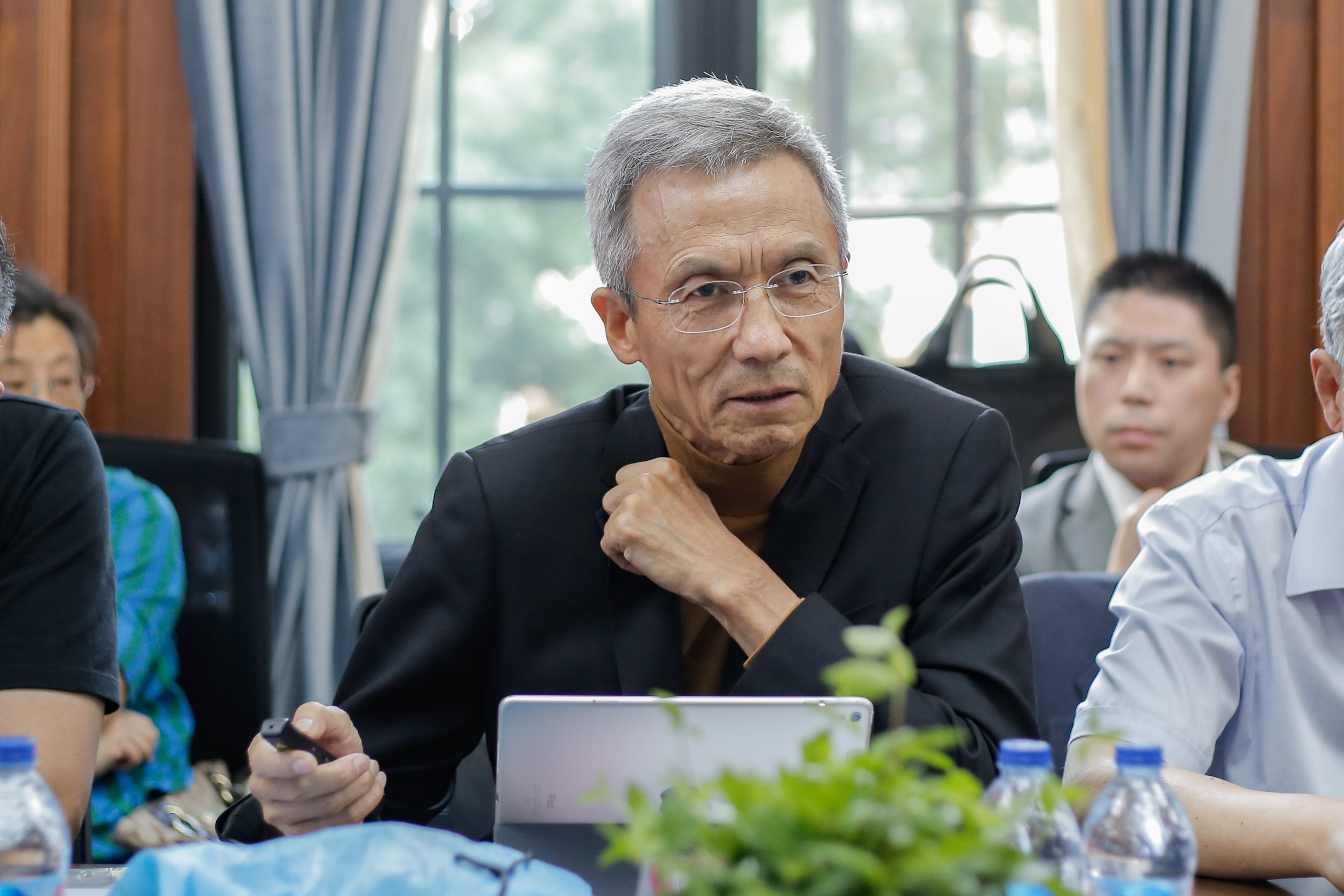
Professor Xu Xiaonian's Speech
Professor Xu first mentioned that his original intention of studying politics was to study economic issues in the context of China's modernization reform. Then, he divided the modern institutional system into three parts, namely, the conceptual subsystem, the economic subsystem and the political subsystem, and discussed the institutional problems in the process of modernization between China and Japan on this basis. Professor Xu pointed out that both China and Japan initiated modernization reforms under external pressure, and were forced to carry out modernization transformation because of the legitimacy crisis of the regime's inability to defend the land and secure the people. However, Japan's reform started from the political subsystem, while China's reform started from the economic subsystem, and compared the historical experience of China and Japan. Later, Professor Xu introduced in detail the political and economic situation in Japan during the Meiji Restoration, the period of Taisho democracy, and the period of Showa's transition to militarism. He pointed out that in the process of Japan's modernization, the national system was only superficial, because the unipolar system was unable to handle multiple interests, and there was internal instability.
Later, Professor Xu talked about the process of China's economic modernization and affirmed the great achievements of reform and opening up. Only by keeping the political system unchanged and actively maintaining social stability, can the domestic economy grow at a high speed. At the same time, it is pointed out that China still lacks effective private property rights protection, which may lead to insufficient innovation driving force and affect economic growth. Thus, it can be seen that some modern subsystems in China are incompatible and unstable.
After the speech, Professor Wu Jinnan, former director of the Japan Research Office of the Shanghai Institute of International Studies and director of the Academic Committee of the Japan Research Center of Shanghai Jiaotong University, made a brilliant comment on the two previous keynote speeches. Professor Wu pointed out that the two speakers analyzed the traditional political culture of China and Japan from the perspective of history and economics. They were from a strategic perspective, which is worth considering carefully. Later, he said that the actual differences between the traditional political cultures of China and Japan were great, but the two countries had the same path of modernization, including not only the modernization of implements, but also the modernization of systems. Japan is a pioneer of East Asian reform. China and Japan can learn from each other in continuing to promote reform and opening up.

Comments of Professor Wu Jinnan
After the comments, the lecture entered into the guest questions and discussions. Professors Ge and Xu actively interacted with the audience in a warm atmosphere. One of the guests raised a question about the development trend of the economic system in the context of the retrogression of the political system. Professor Xu stressed that politics had a significant impact on the economy, pointing out that political retrogression would lead to the failure of effective protection of private property rights and the unsustainable long-term depression of the economy. Therefore, the stability of the political system is of great significance.

Professor Xu Xiaonian answers guests' questions
Subsequently, Professor Chen Yingfang of School of International and Public Affairs of Shanghai Jiaotong University and Professor Gao Quanxi of Kaiyuan School of Law of Shanghai Jiaotong University made concluding remarks on this special lecture.
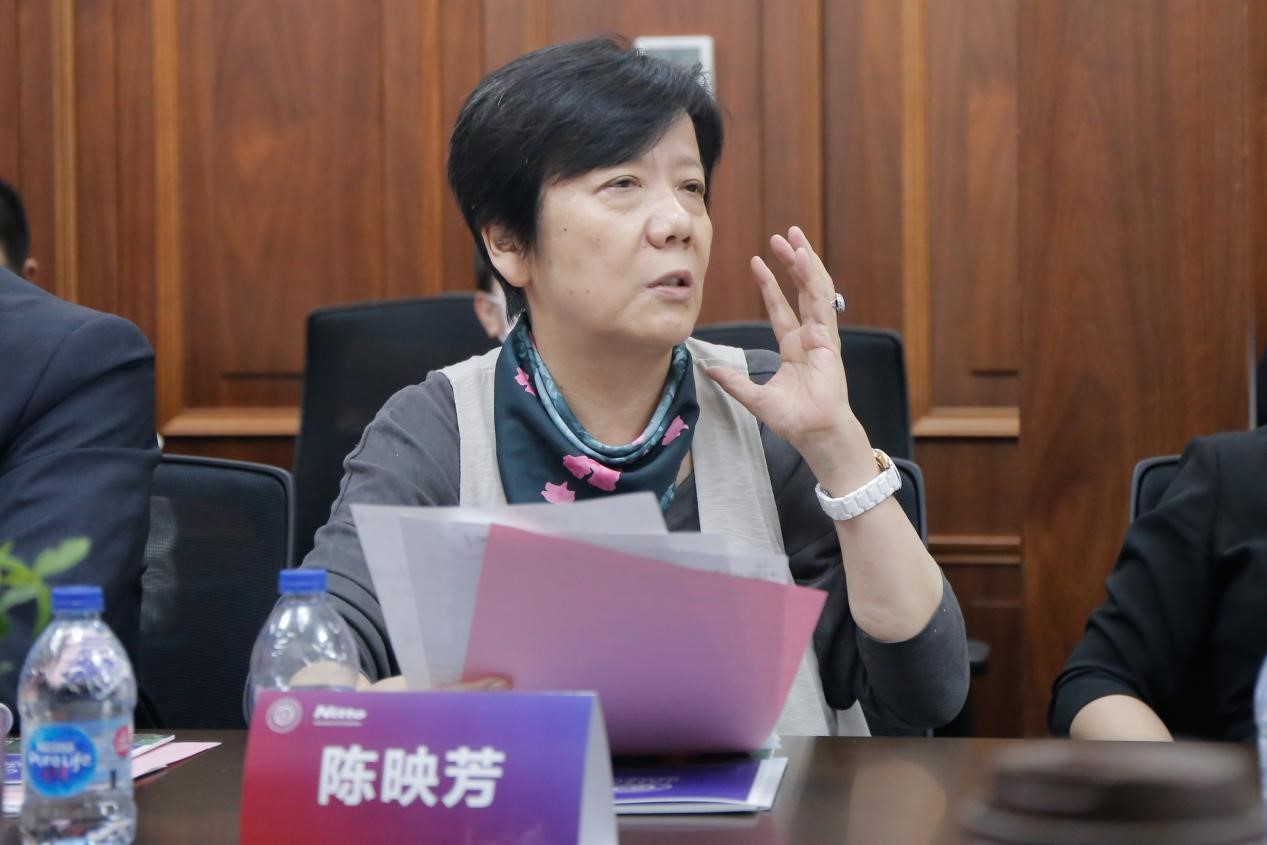
Professor Chen Yingfang gives a speech

Professor Gao Quanxi gives a speech
Finally, Ding Jian, Secretary of the Party Committee of the School of Foreign Languages of Shanghai Jiao Tong University and Deputy Director of the Japan Research Center, and Great Wall Shengyi, Director of Nidong Electrical Engineering (China) Investment Co., Ltd., respectively presented a certificate of thanks to Professor Ge Zhaoguang and Professor Xu Xiaonian for the wonderful speech they gave to this Nitto Lecture, and also thanked them for their outstanding contributions to China and Japan's research and exchanges for a long time.


Issue a Letter of Appreciation
Later, Professor Ji Weidong and Cai Yuping, Deputy Director of the International Exchange and Cooperation Division of Shanghai Jiaotong University and Deputy Director of the Japan Research Center, jointly issued a letter of thanks to Professor Wu Jinnan for donating books and journals for Japanese research to the Japan Research Center and for his long-term support and guidance for the work of the Japan Research Center.
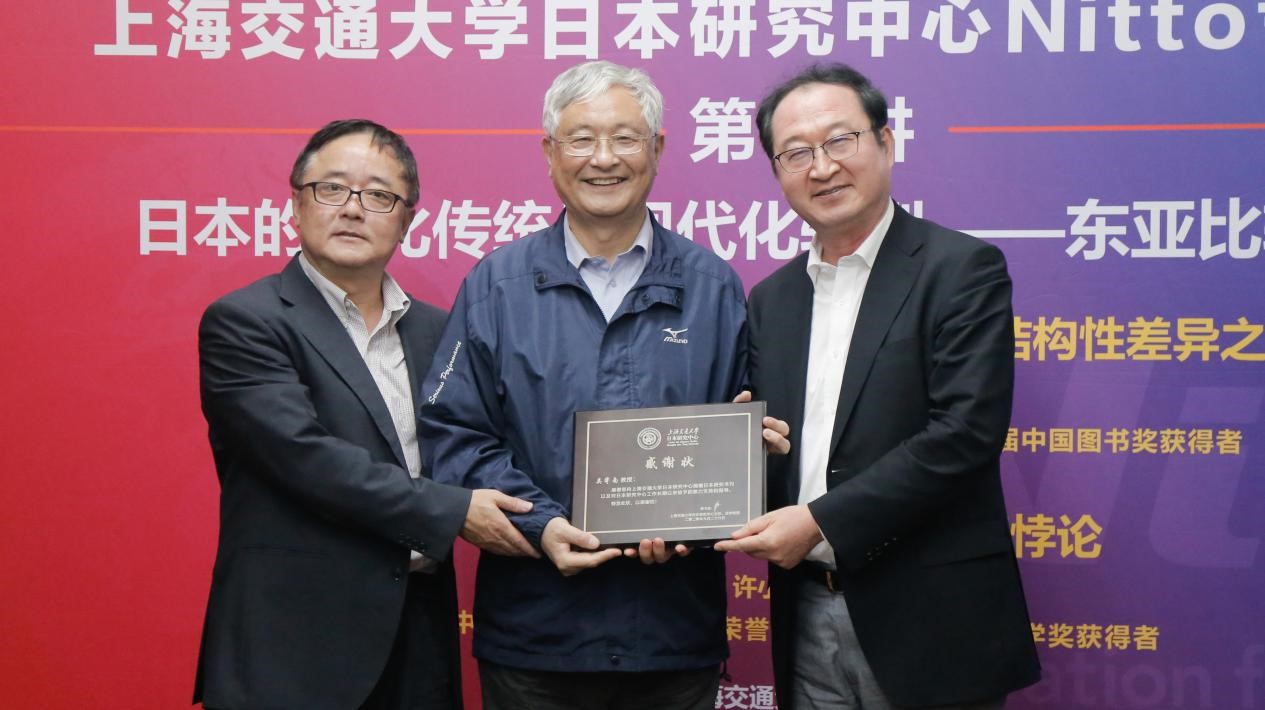
Donation Ceremony of Professor Wu Jinnan's Books and Periodicals
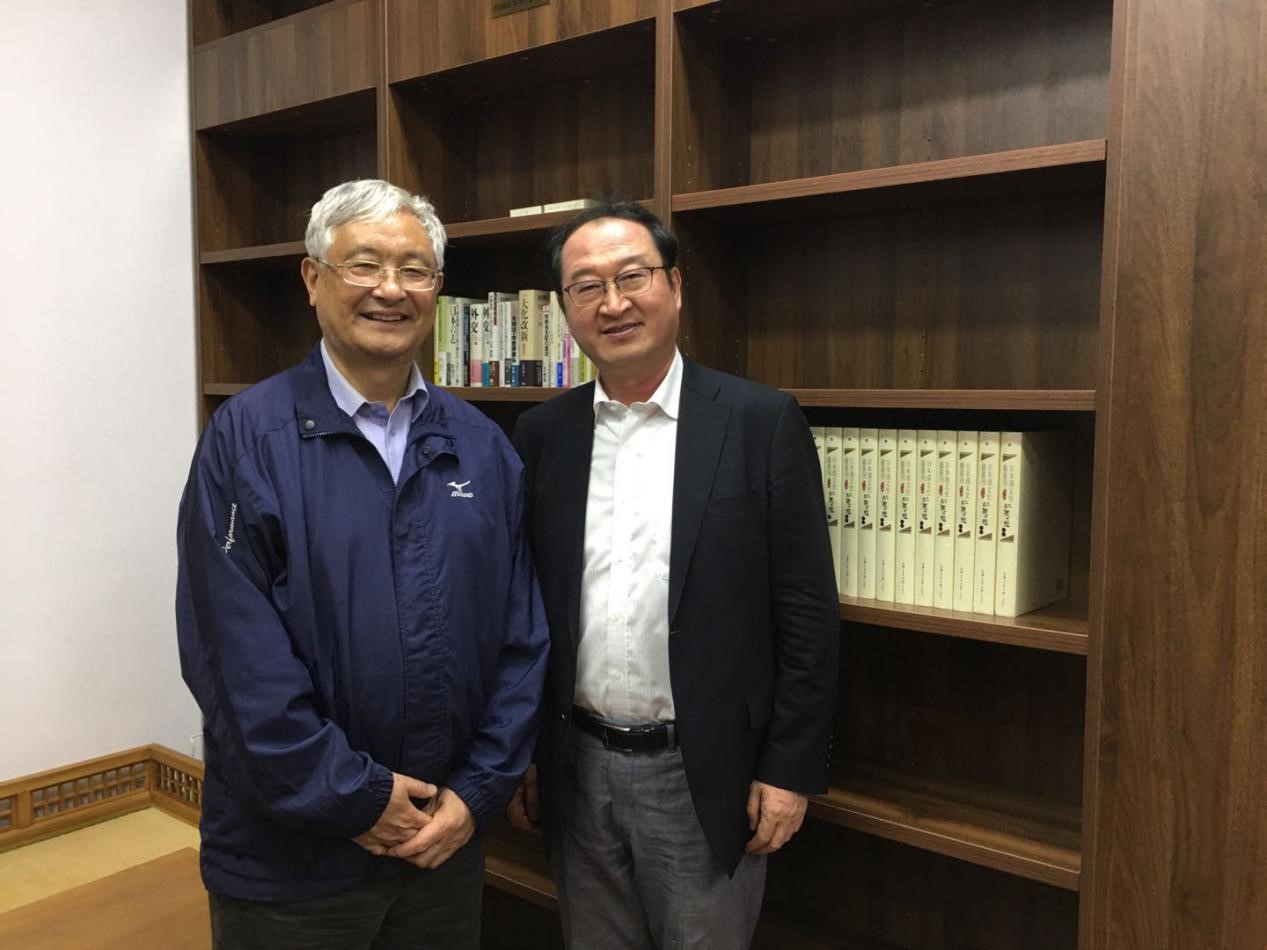
Director Ji Weidong and Professor Wu Jinan took a group photo before donating Japanese research books
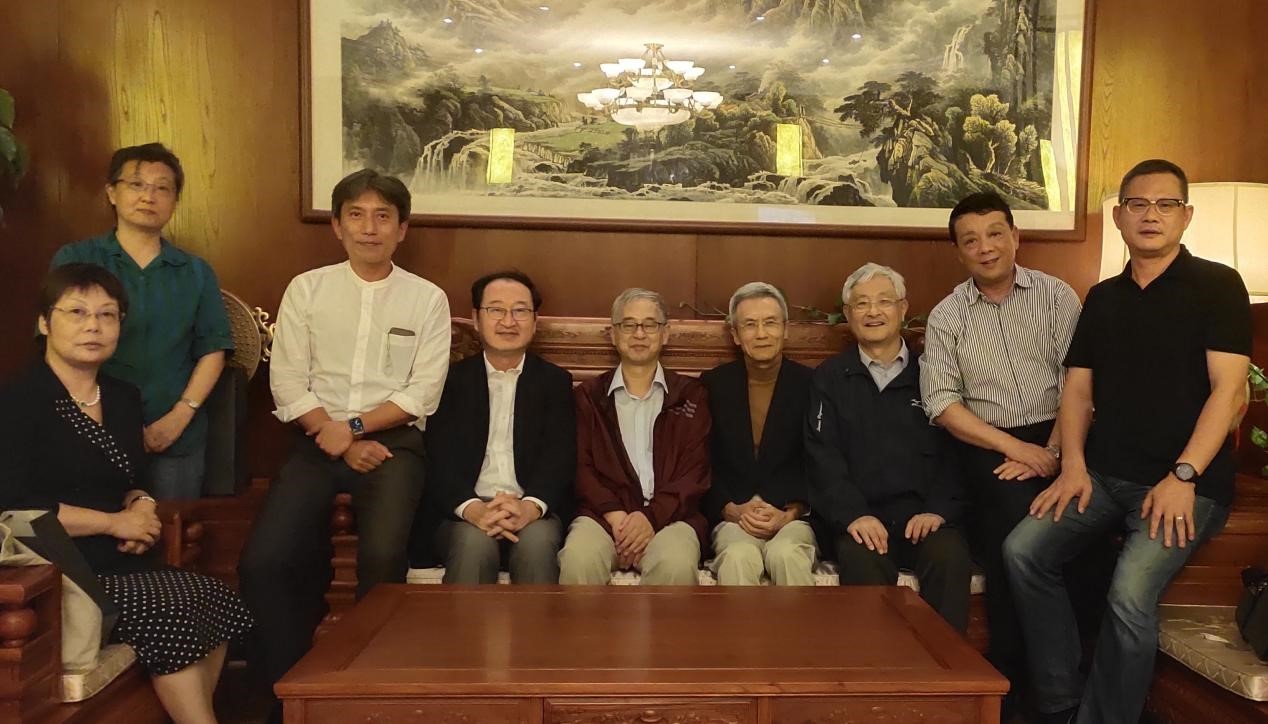
Group photo of some guests
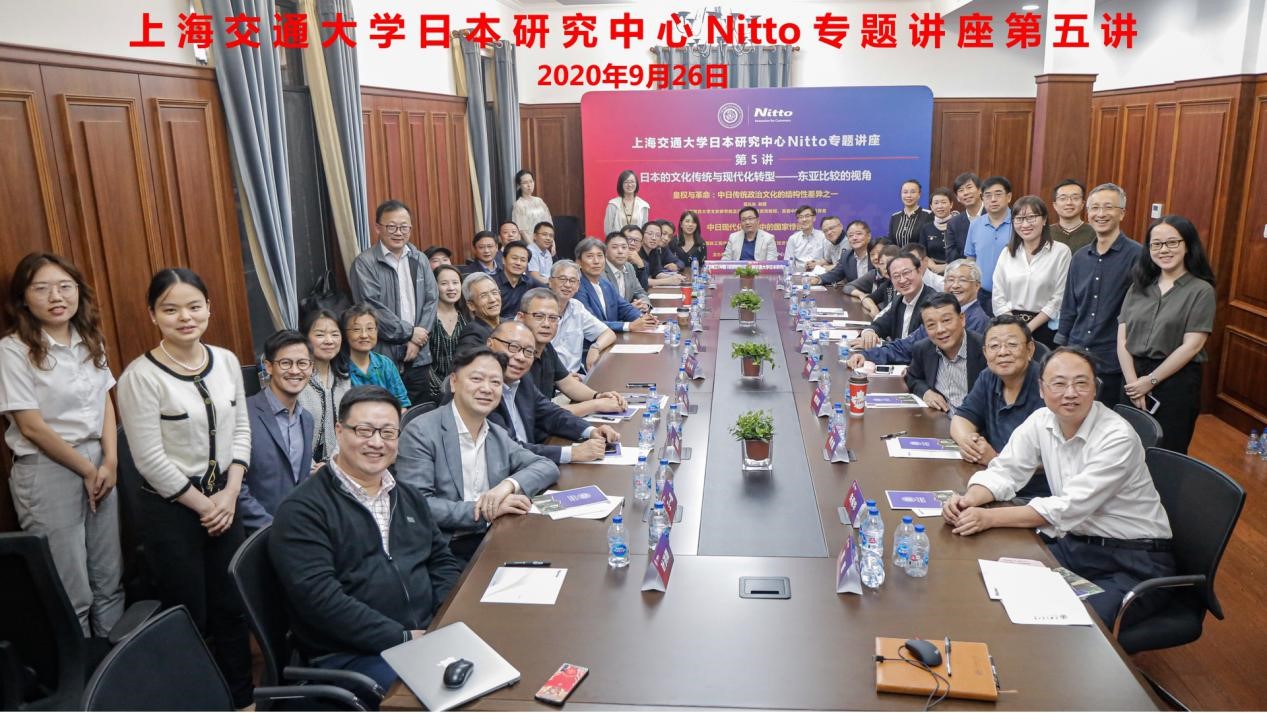
Group photo of all guests